Menu
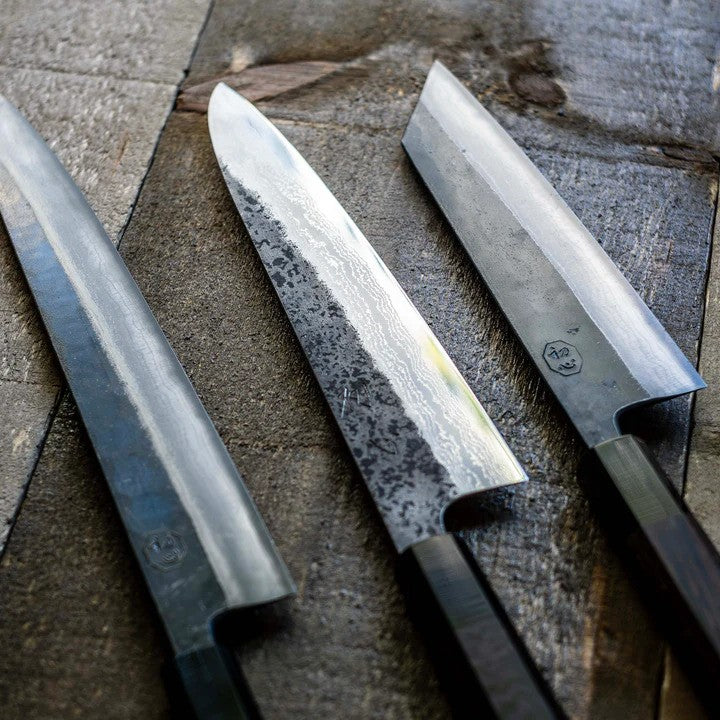
THE BLACKSMITH
HATSUKOKORO
- Choosing a selection results in a full page refresh.




















Usually ready in 1 hour
| Length | 170 mm |
| Total Length | 315 mm |
| Steel | Ginsan |
| Handle | Olive wood |
| Ferrule | N/A |
| Rockwell | 62-63 HRC |
| Height Spine to heel | 47 mm |
| Width at Spine | 2.35 mm |
| Weight | 141 grams |
| Bevel | Double (50/50) |
The Blacksmith
Hatsukokoro brings in masters of smithing, sharpening, and handle making to ensure quality, and a high attention to detail on their knives, so you know that you will be getting an amazing work knife. Based out of the industrial city of Amagasaki , Hyogo Prefecture, Japan, Hatsukokoro offers a wide breadth of handcrafted blades, sourcing from a variety of knife making regions across Japan. Their offerings are diverse in price point and profile, making them a great option for both industry guys and home cooks.
The Knife
Santoku translates to three virtues. Meat, fish, and vegetables, or slicing, dicing, and chopping. No matter what way you look at it, it implies the versatility of the knife. While you sacrifice some of the slicing capability of a larger gyuto, don't be fooled by its size, the santoku can get 99% of your kitchen tasks done without breaking a sweat, which is probably why its the most popular shape in Japanese home kitchens.
Follow these care recommendations for your Japanese knives to protect the edge and keep them sharp as long as possible:
All products are shipped within 24 hours. We offer same day shipping for products ordered by 12pm. Please allow 4-7 business days for your shipment to arrive with standard shipping. Expedited shipping options are also available at checkout.
We offer free shipping on orders within Canada over $150 CAD and free shipping on orders to the US over $200 USD.
Curbside pick-up is available at both our Hamilton and Etobicoke locations.
To make sure our customers are always satisfied, we offer full refunds on products for 14 days after receiving them. See our full return policy for details.
More questions? Check out our shipping policy, our return policy, or reach out to us directly.
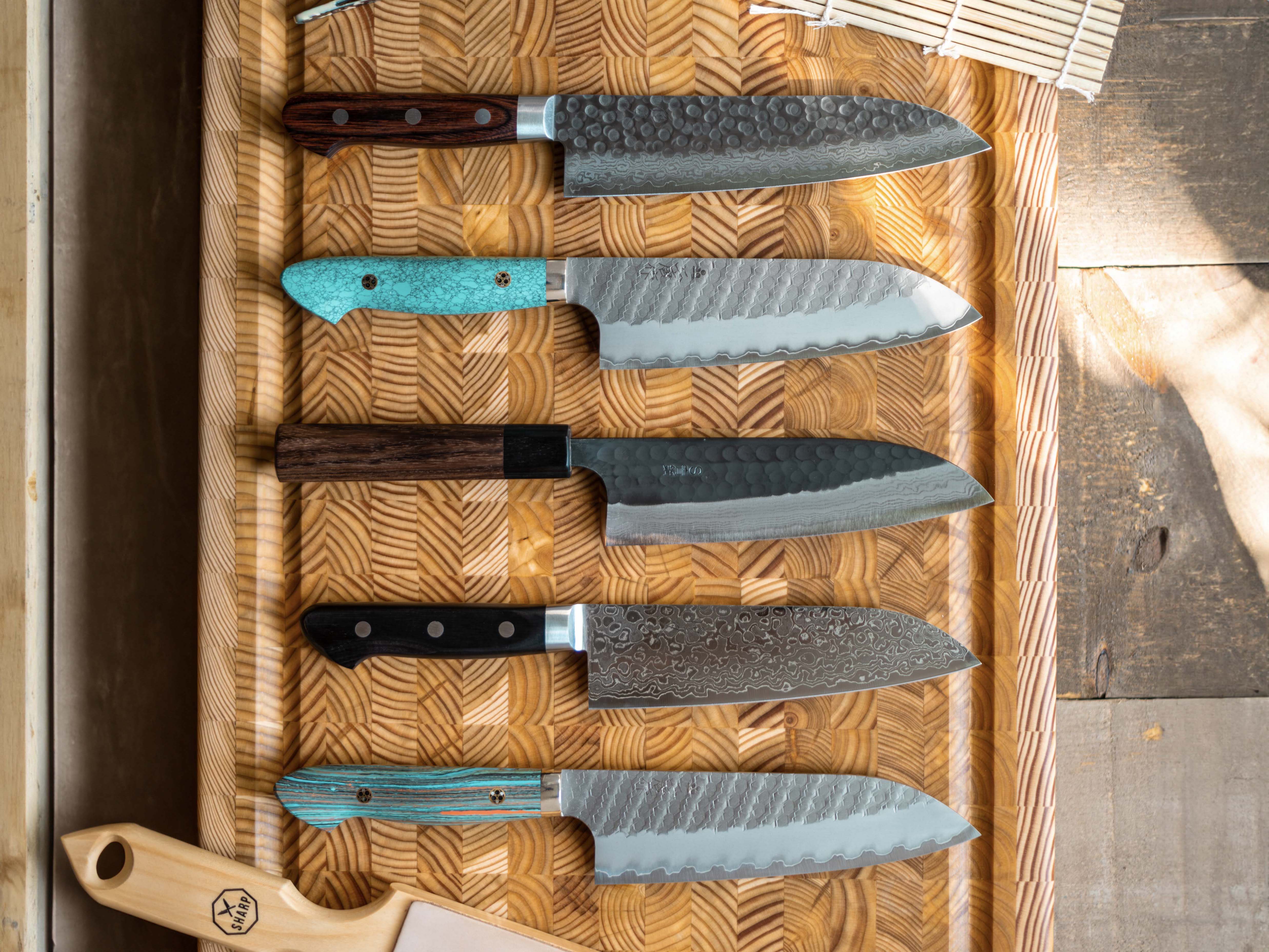
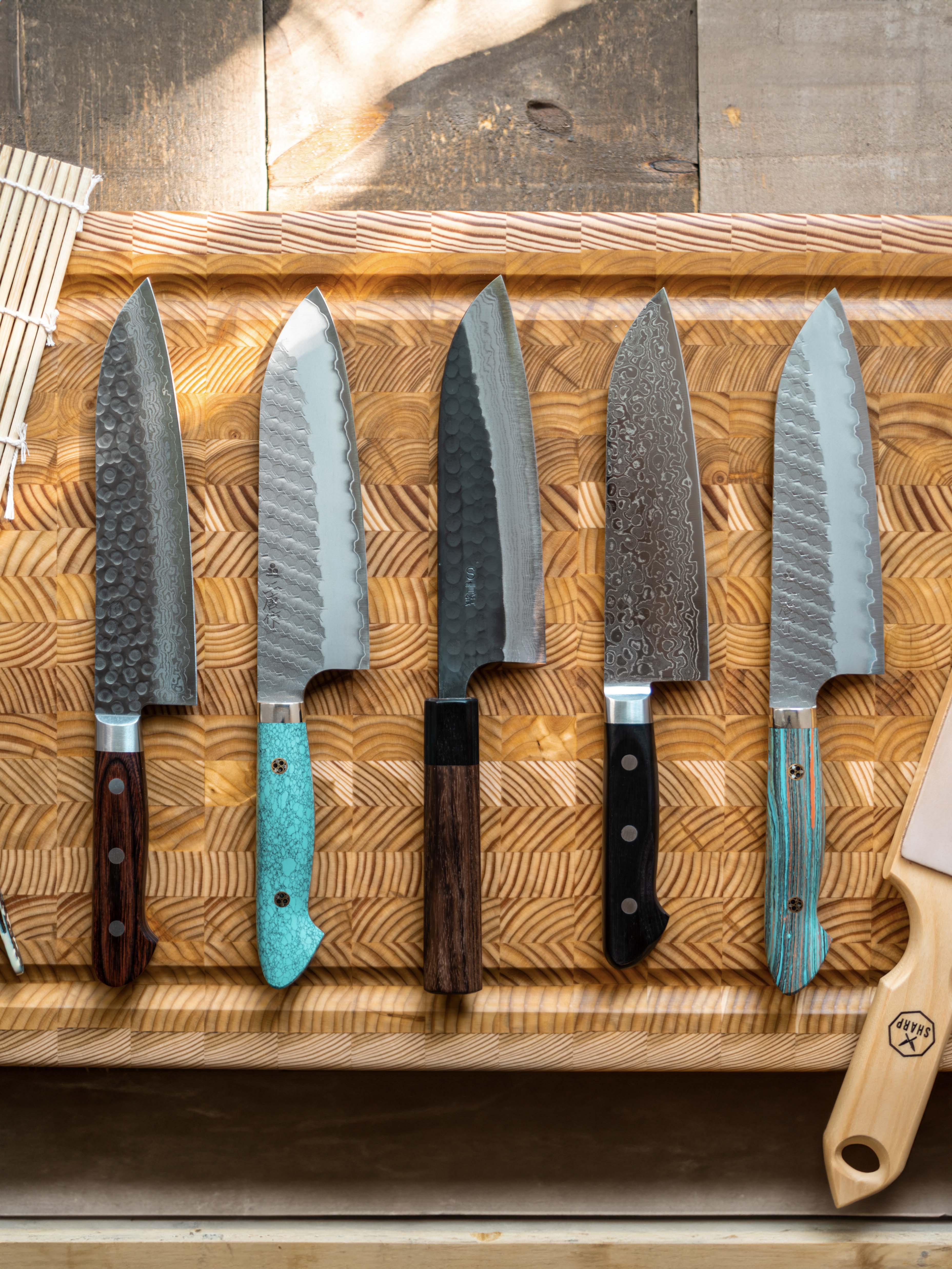
The word "Santoku" translates to "three virtues" and refers to slicing, dicing, and chopping, or meat, fish, and vegetables, depending on who you ask. The name highlights the extreme versatility of the shape, which is why we recommend it most to home cooks. Santokus are typically in the 165 mm (6.5 inch) to 180 mm (8 inch) length range. They generally have a gentle curve that sweeps up toward the tip, so they can easily be used with an up and down chopping motion or a rocking motion.
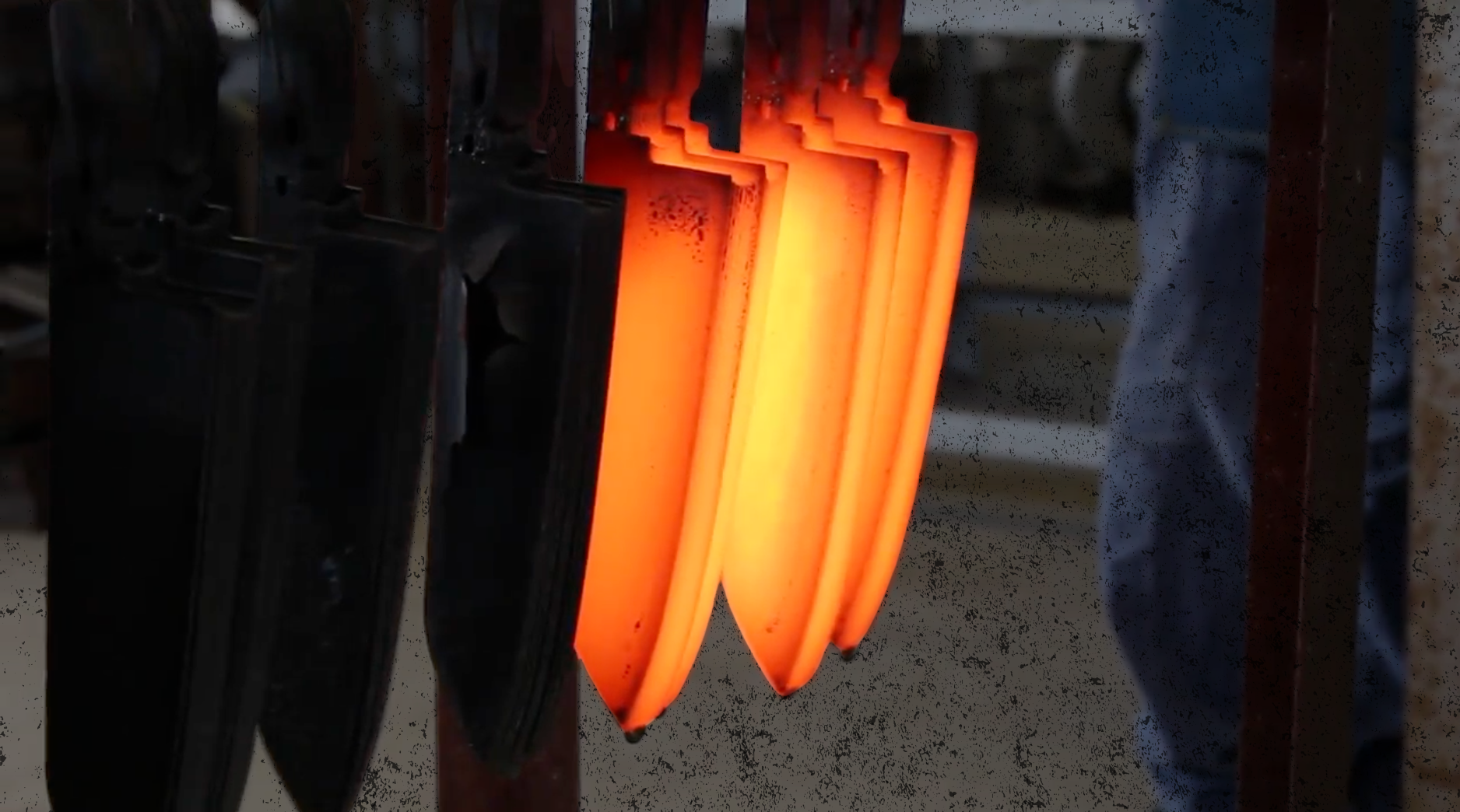
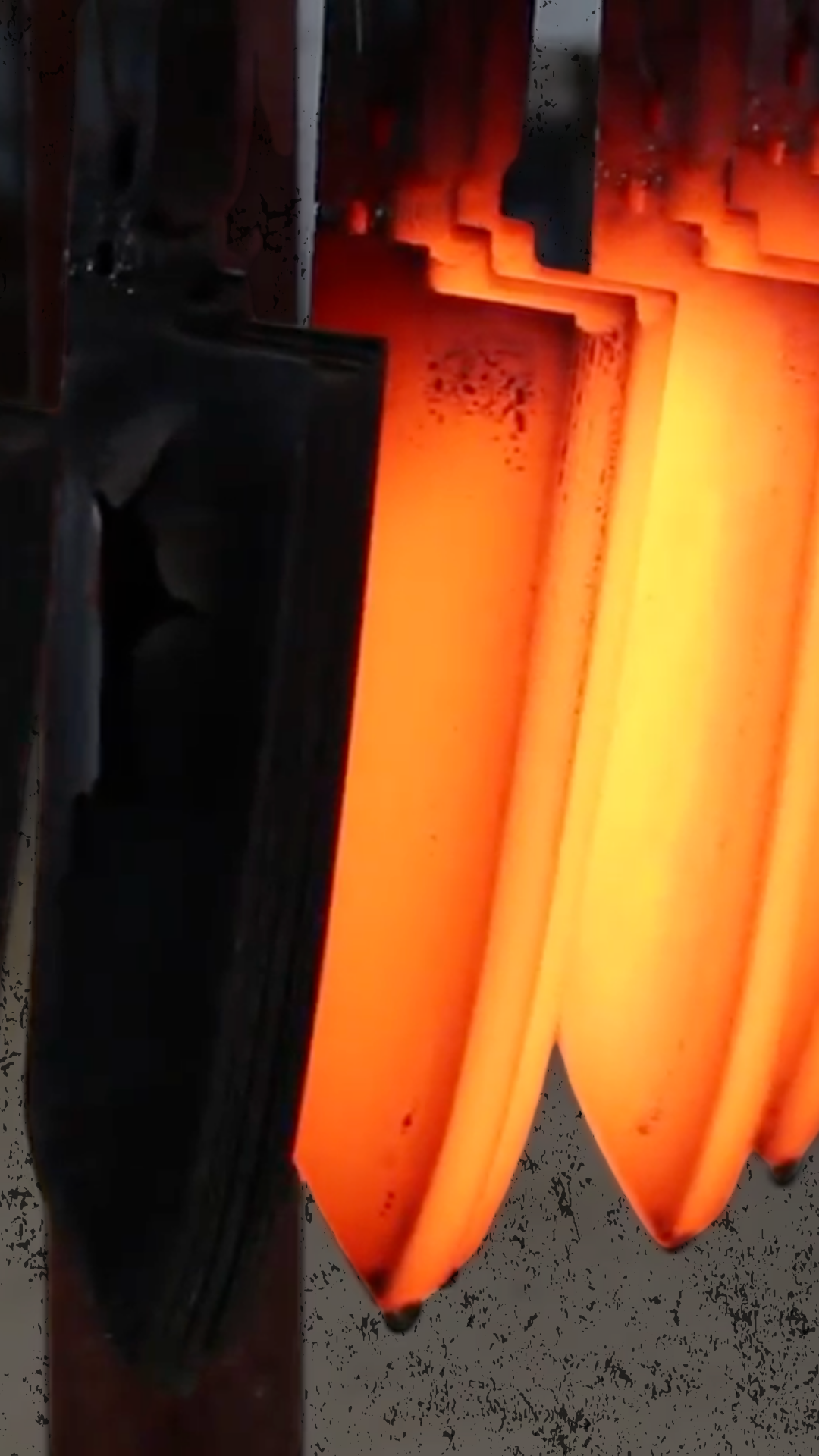
This steel is said to be the most similar to a carbon steel of any stainless steel, because of how easy it is to sharpen. It is technically a semi-stainless steel and is susceptible to rust and discolouration, but must be very poorly treated for any rust to form. It has become a very popular steel type amongst Japanese blacksmiths, home cooks, and professionals alike. It is great for those looking for relatively easy maintenance and easy sharpening.
Chemical Composition:
C 0.95-1.10% | Cr 13.0-14.5%
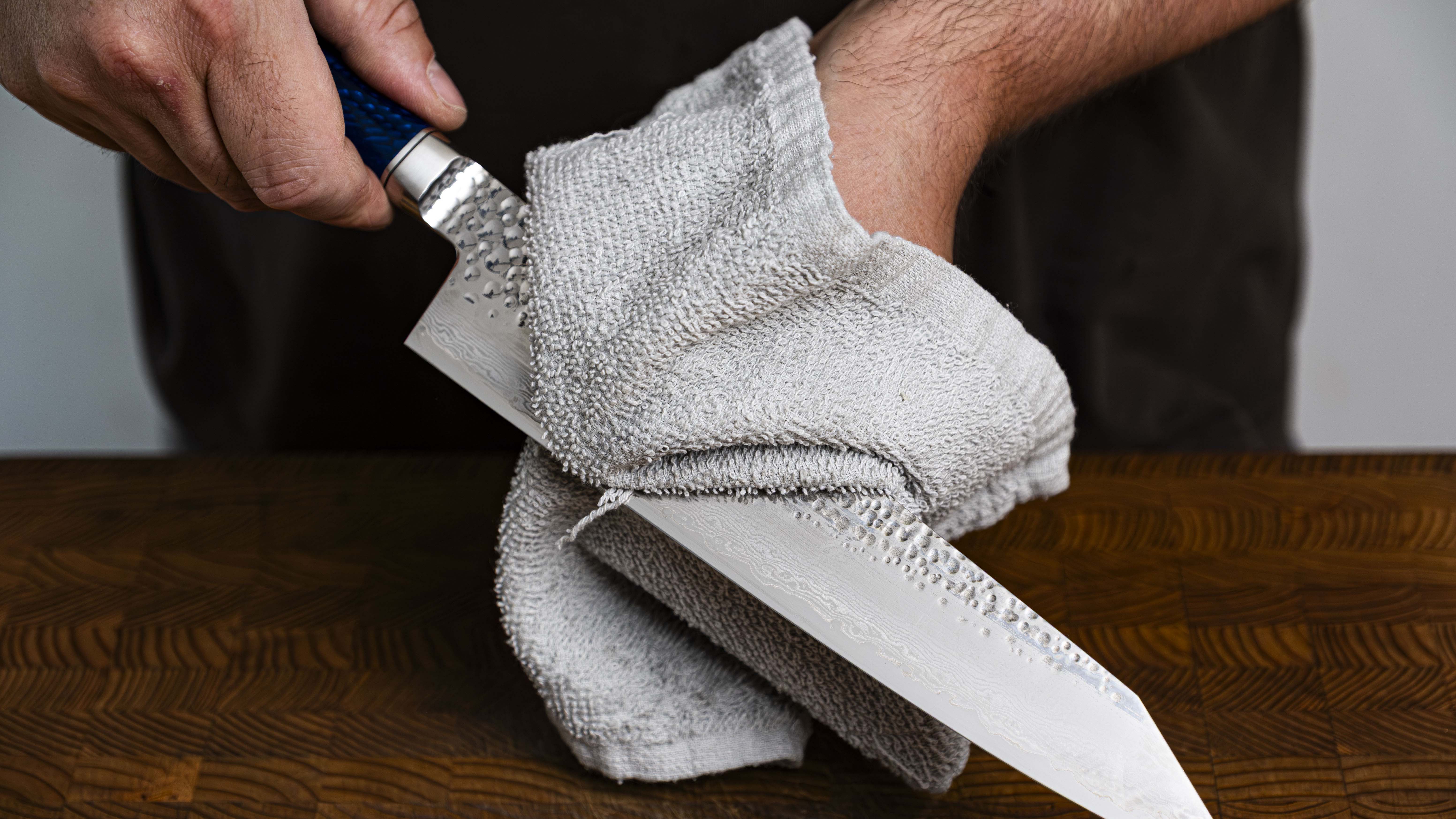
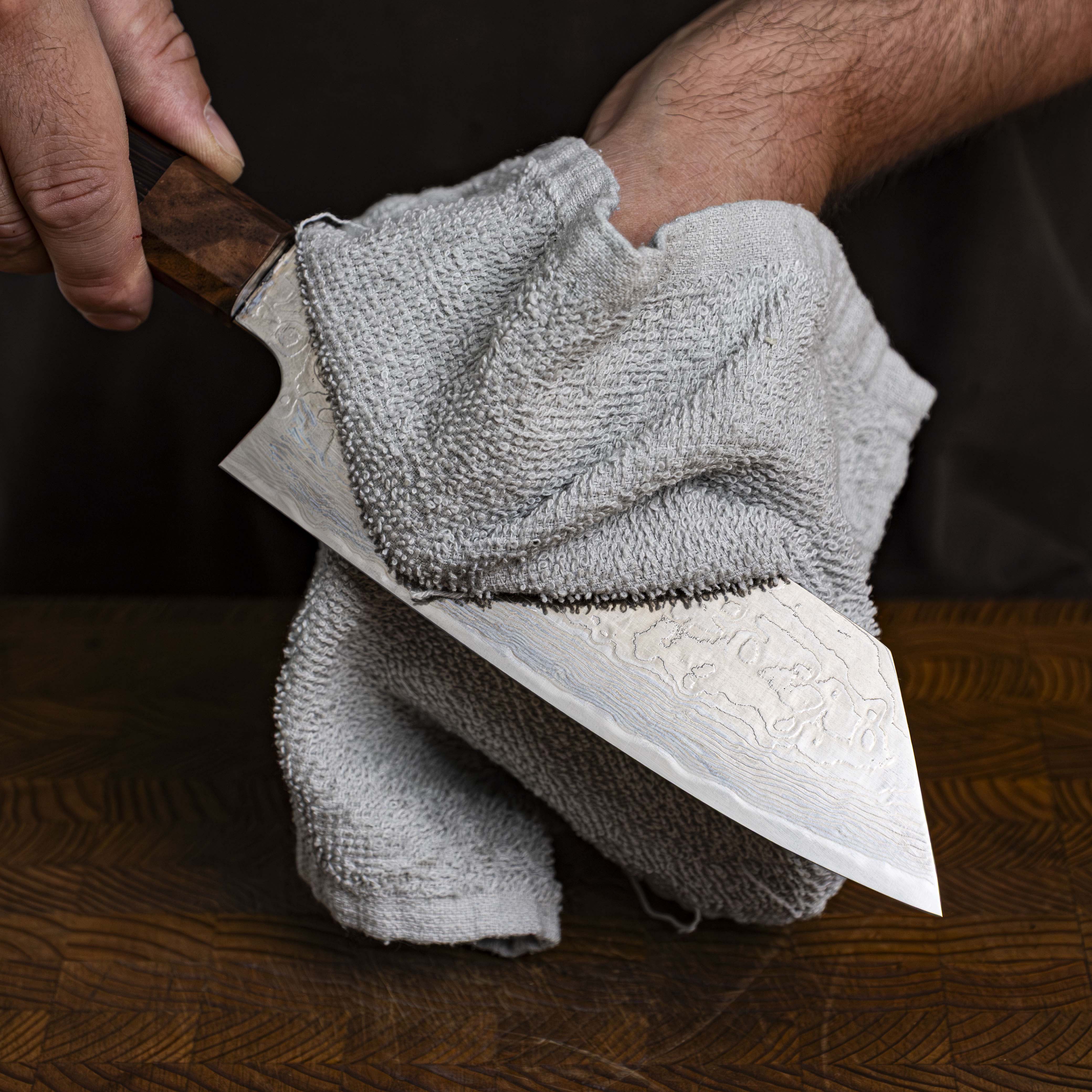
LOW MAINTENANCE
Stainless steel Japanese knives are made in a process called “Sanmai” or “Forge welding” where two softer layers of stainless steel are laminated around a harder core layer of stainless steel. All three of these layers are rust resistant and therefore are not susceptible to rust or discoloration. The softer outer layers of steel are used to make the knife more durable and flexible while the harder core layer is used to provide better edge retention to the blade.

Hatsukokoro are masters of smithing, sharpening, and handle making. They ensure quality and a high attention to detail on their knives, so you know that you will be getting an amazing work knife. Based out of the industrial city of Amagasaki, Hyogo Prefecture, Japan, Hatsukokoro offers a wide breadth of handcrafted blades, sourcing from a variety of knife making regions across Japan. Their offerings are diverse in price point and profile, making them a great option for both industry professionals and home cooks.
